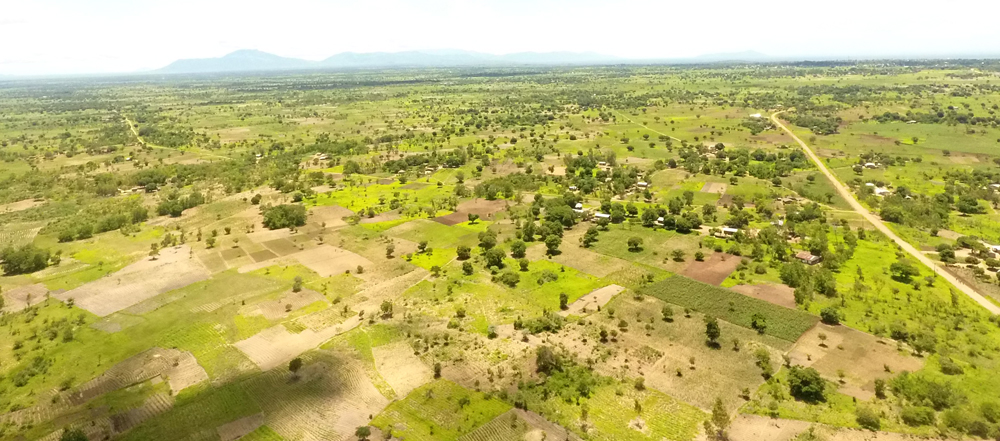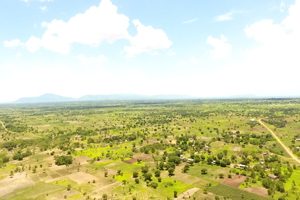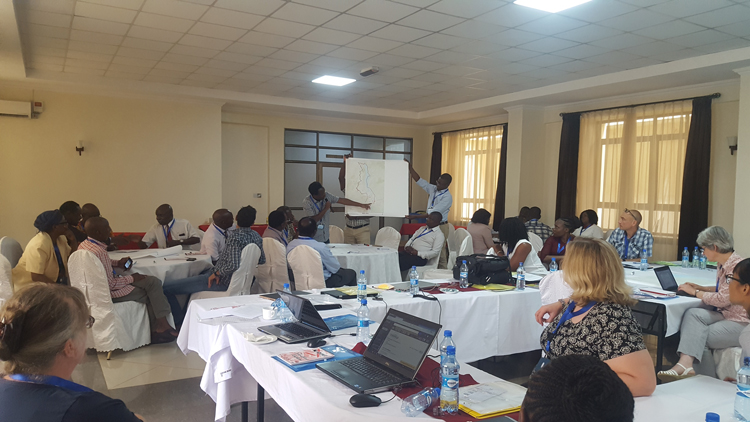
BRECcIA (Building REsearch Capacity for sustainable water and food security In drylands of sub-saharan Africa) is the largest funded Global Challenges Research Fund (GCRF) project the University of Southampton leads at present. BRECcIA is funded under the first large-scale consortia call from GCRF (see https://www.ukri.org/research/global-challenges-research-fund/funded-projects/) – 37 projects are included in the £225million Growing Research Capacity (GROW) call. The programme promotes the development of global networks, equitable research partnerships and capacity building of individuals, institutes and stakeholders in both Overseas Development Aid (ODA) counties and the UK.
BRECcIA is led by Professor Justin Sheffield, along with Geography and Environmental Science based Co-Investigators Prof Jadu Dash, Dr Jim Wright and Chris Hill. Social Science, Biological Science, Electronic Computer Science and the Centre for Higher Education Practice are also represented.
BRECcIA is working with universities in Ghana, Kenya and Malawi, and regional centres in South, East and West Africa to develop the research capacity of academics and stakeholders to deliver research with impact across areas affected by drought and severe lack of food and water, to relieve poverty across sub-saharan Africa. BRECcIA has a dual aim to develop capacity of those partners involved to manage research. The project includes 28 Co-investigators, 5 research management staff, and to-date has appointed 23 researchers across our partner institutes, including the first ever PDRA at Masinde Muliro University of Science and Technology in Kenya.
With the first of four years complete, the projects ‘inception phase’, dedicated to the setup of project governance and structures, development of robust partnerships, co-creation of research ideas with international partners and the co-design of research projects with local stakeholders has come to an end. We are about to enter our ‘implementation phase’ where those projects start up.
Stakeholders have been mapped within our study countries and engagement started through a first round of stakeholder workshops – a total of 96 stakeholders from government, NGOs, civil society, media, academia and industry have attended the first workshops in Ghana and Malawi. We are engaging with stakeholders to co-design our research projects, focusing on their needs and possible upcoming policy or data requirements. This approach aims to maximise the potential impact of our research. To build new partnerships, ‘Small Research Projects’ are proposed by teams consisting of BRECcIA Co-Is, Researchers and stakeholders across sub-Saharan Africa. Collaborations with government ministries, drought monitoring authorities and new universities have already emerged.
We have learnt from responses at workshops in Malawi and Ghana that stakeholders value the importance of incorporating gender, governance, economic and ecological approaches to research on climate change and food/water security. Through interactive mapping exercises, stakeholders have helped us identify dryland sites to focus our research within Malawi, Kenya and Ghana. The use of new technologies (e.g. drones) is a priority for many stakeholders, particularly for smallholder farming needs to become more productive, more sustainable and more profitable.
 In March 2019 University of Southampton will be hosting a BRECcIA Training Workshop linked to the prestigious Gregory Lecture and in July we’ll be holding our first Summer School in Malawi.
In March 2019 University of Southampton will be hosting a BRECcIA Training Workshop linked to the prestigious Gregory Lecture and in July we’ll be holding our first Summer School in Malawi.
Follow us on Twitter @GCRF_BRECcIA and online www.gcrf-breccia.com



